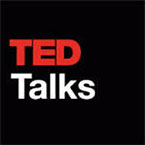Joep Lange died on July 17, 2014 jointly with his partner Jacqueline van Tongeren in the downing of the airplane of Malaysian Airways over the eastern Ukraine. They were on their way to an AIDS conference in Melbourne, Australia. AIDS was the cause Joep dedicated the majority of his professional carrier to with passion, endurance and unstoppable energy like no other. Joep was my friend for thirty years.
I met Joep, thirty years old, in 1984 at the rounds of the Internal Medicine Department of the Academic Medical Center of the University of Amsterdam where he was a resident and I the attending virologist. We connected at the first instance and found out that we shared a profound love for literature. We started there and then a project producing a list of the hundred books we loved most with the one rule that adding one would mean one book had to go. It took us five years to compose the list.
Joep started to add immediately all the Russian classics he had read already to the full and I only haphazardly. Dostoyevsky, Chekhov and Tolstoy entered the list with more than one book, I hadnt read, but I trusted Joep already completely by then.
The first entries we both read and agreed upon were: Oblomov by Gontjarov, The Master and Margarita by Boelgakov and Chevengur by Platonov. Joep’s favorite book in 1984 to the best of my recollection, was Auto-Da-Fe by Elias Canetti just winning from The Streets of Crocodiles/ Sanatorium under the sign of the hourglass by Bruno Schulz. This immediately tells you something about Joep: he loved the absurd and surreal, he loved Eastern European writers and he was fascinated by Europe between the two world wars.
For Joep books were alive, Joep lived the lives of the main characters, and he kept the list alive for thirty years giving me a book on every occasion hoping the list would be amended. He loved giving books, he carried his favorites around and gave many times simultaneously the same book to many friends.He was like Herr Doctor Peter Kien in Canetti’s masterpiece living by the adagium: ” Who knows if a book may not yearn for other books, its companions for many years..”
Joep had increasingly an affection for writers who wrote diaries or letters , like Kafka and Flaubert or writers who wrote both fiction and non-fiction like Julian Barnes, who wrote a memoir in 2008 as an hommage to Jules Renard, another favorite of his.
The last five years it appeared that Joep’s interest shifted form fiction to non-fiction almost completely, an appetite waken up by the New York Review of Books. I got the feeling he wanted to become a non-fiction writer himself next to the family man he was when I received his 2014 gift ,the last one I received, “New Ways to Kill your Mother” by Colm Toibin. His favorite non-fiction writer without a doubt was Tony Judt, the historian of francophone Europe. Joep found his rest at the houses of his sister and himself in the Rousillion-Languedoc region drinking the robust Saint -Chinian wines. His 2013 gift was Tony Judt’s The Memory Chalet”, Joep loved knowing things by heart like Judt was forced to do at the end of his life because of his invalidating illness.
Joep had the ability to hate and love the same things at the same moment in time. He could yell or shout at his loved ones, he was able to write offensive emails to his best friends, the most effective strategy was to delete them and forget. That is what he did too.
Between my wife Fransje van der Waals, – who was also Joep’s gp-,myself and my children we saw Joep and Jacqueline regularly and the children off and on. I will never forget the time we spent together in Curacao for courses on the epidemiology of AIDS and how to deal with the stigmas of the disease. Joep founded jointly with my wife in 2003 Health (e) Foundation to fill the gap of blended learning through internet and face-to-face courses on HIV and other diseases rising in the developing world. By then Joep had entered his advocacy phase and had founded Pharmaccess in 2000, and many other non-governmental organizations, all with the single goal to rid the world of AIDS.
Joep was enigmatic and elusive in his ability to be nit-picking ,-on the wording and phrasing of manuscripts -, and sloppy at the same time. His research was impeccably executed and reported and still stands. But he lost the raw data for one of the chapters of his thesis in the Amsterdam tramway and as he stated in the acknowledgements for his thesis, he forgot the manuscript of the whole thing at ‘a even more improbable place’, only to be recovered miraculously by the mother of Heleen, the mother of Joep’s children.
Joep Lange contributed significantly to the understanding of AIDS with two publications in 1986 and to the way to fight AIDS in 1998 with a beautifully designed, -he was very good at that too-, clinical trial. In January 1986 Joep published a paper in the British Medical Journal, showing the mysterious disappearance of antibodies to specific viral proteins from the blood of HIV-infected individuals progressing to AIDS. The last alinea of the paper was:
“Whether the decline of anti-p24gag titre is due to excessive production of viral antigen in progressive symptomatic LAV/HTLV-III infection or to the exhaustion of B cell lines producing anti-p24gag, or both, has yet to be investigated.”
And investigating he did that year, Joep worked tirelessly,day and night and provided the answer to the above question in a follow-up paper appearing in the British Medical Journal in December of the same year 1986. The last alinea of that paper was:
” Whether the production of HIV antigen accurately reflects complete replication with the production of infectious virions is still to be investigated.”
And the rest is history: More antigen in the blood of HIV infected individuals predicted immunological impairment and the progression to AIDS, and longterm survivors had little or no HIV antigen in their blood. Antiretroviral drugs reduced the amount of HIV antigen and postponed AIDS. Finally the relatively insensitive antigen test was replaced by the more accurate and sensitive HIV viral load test.
There was a lot of comradery in the MD/PhD program in our retrovirology lab of the AMC in that early period of the HIV epidemic in the 1980s, most of them still close friends, and Joep was the thesis advisor of all but one: Peter Reiss, Charles Boucher, Peter Portegies , Menno de Jong and Frank de Wolf and all became professors at well respected academic institutions. Joep stayed on as staff of the retrovirology lab for almost ten years till 1995 , but moved decisively to the application of these technologies to the benefit of the patient. His clinical vision led to a series of pivotal trials of antiretroviral small molecules, to name a few: the PETRA, the SIMBA, the Atlantic and the 2NN trial, but most importantly the INCAS trial, published in 1998.
The INCAS trial was a close collaboration between Joep and his new comrads in arms, his new friends Julio Montaner, David Cooper, Stefano Vella and Mark Wainberg. The trial published in the Journal of the American Medical Association and led by Julio and Joep showed that three drugs reduced the viral load better than two, resulted in less drug resistance and halted the progression to AIDS. From there on Joep focussed more and more on getting these drug combinations to all in need and became the activist who took no prisoners, -in words of course.
The last ten years Joep focussed more and more on the context why so many people did not get the drugs they deserved,the fight against poverty, the fight for access but lately he envisioned a new frontier for himself: the rising tide of non-communicable diseases in subsaharan Africa. We will miss Joep’s contribution in this new area, realising more than ever what he was able to contribute to the fight against AIDS. Each of us will miss a different Joep: the opera lover, the bird watcher,
the debater, the intellectual, the long distance runner, – he completed the marathons of New York , Boston and Amsterdam (twice!)-. The only consolation we have, is:
the AIDS fighter Joep Lange died in harnass in the frontline holding hands with Jacqueline.




